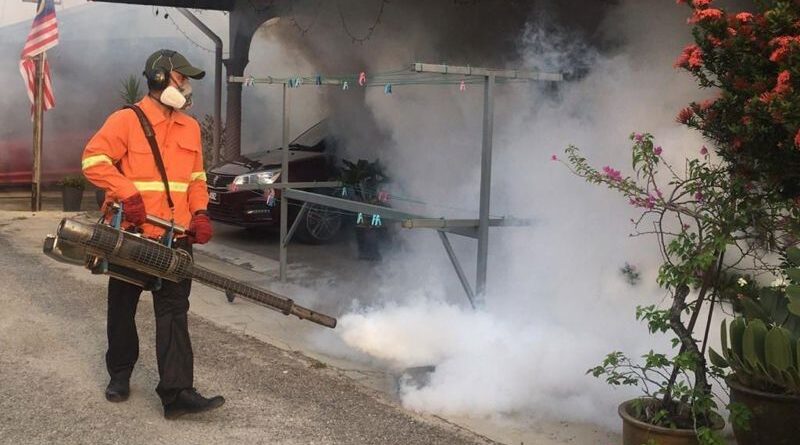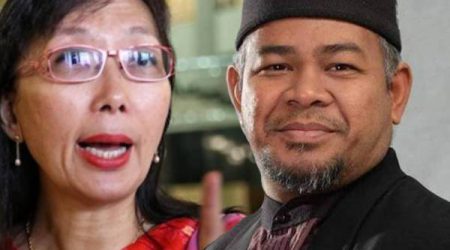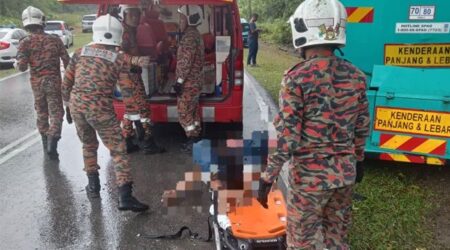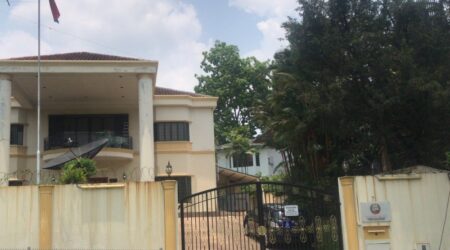Klang still recording over 100 dengue cases weekly
DENGUE cases in Klang have remained at a worryingly high number.
Klang Royal City Council (MBDK) records show that there have been more than 100 cases a week over these last three weeks.
The city council’s Health Department director Azmi Muji attributed this to unusually warm weather and rain in the late afternoons, which created an ideal breeding environment for mosquitoes.
“Our health inspectors have noted 130 confirmed dengue cases as of the 19th week (May 6 to 12). In week 18, the city recorded 126 cases and 141 cases in week 17.
“We encourage residents associations and Rukun Tetangga in neighbourhoods to organise community clean-up activities to ensure their surroundings are free from stagnant water,” he said.
According to the Selangor government’s leaflet on dengue prevention, Aedes mosquito eggs can lie dormant for up to nine months and can hatch within hours if exposed to even a teaspoon of water.
It takes four days for larvae to develop into pupae and adult mosquitoes will emerge after two days.
On average, 217 cases have been reported in Klang every week since the start of the year.
Azmi said that as of Sunday (May 12), Klang recorded a total of 4,126 dengue cases including two fatalities this year compared to the corresponding period last year which had a total of 3,896. No deaths were recorded last year.
In 2023, Klang had a total of 9,164 dengue cases, including three deaths.
From January this year up to May 12, Selangor has already seen 29,824 cases and nine deaths. The deaths were recorded in Hulu Langat (four), Kuala Selangor (one), Petaling (one), Sepang (one) and Klang (two).
According to Azmi said current hotspots in Klang are Apartment Kenangan (15 cases), Jalan Kelicap off Jalan Meru (nine), Flat Seri Perantau (14), Lorong Batu Nilam 32A in Bandar Bukit Tinggi (eight) and Apartment Sri Ayu, Bandar Putera (14).
“We need collective community action and vigilance to curb the surge of dengue,” he said, explaining that dengue hotspots are areas where there are cases for more than 30 days from the time the first case was recorded.
He urged residents living in dengue hotspots to cooperate with the city council’s health inspectors during their rounds.
Of the 11 state constituencies in the Klang area, Sentosa has 713 cumulative cases so far this year; Meru, 567; Sementa, 556; Kota Kemuning, 577; Bandar Baru Klang, 428; Port Klang, 401; Selat Klang, 266; Sungai Kandis, 302; Pandamaran, 270; Kota Anggerik, 23; and Batu Tiga, 23.
MBDK senior environmental health inspector Zakaria Ismail said the city council was continuing inspections of dengue hotspots and maintaining a high rate of preventive inspections to eliminate mosquito breeding sites.
“Higher dengue transmission is usually seen in the warmer months from May to October due to the accelerated development of the Aedes mosquito vector and faster multiplication of the dengue virus in mosquitoes,” he said.
“People should spend 10 minutes a week to check their homes and surroundings to ensure there are no potential Aedes breeding sites. Clean up your place and bag any rubbish,” he reminded.













Leave a Reply